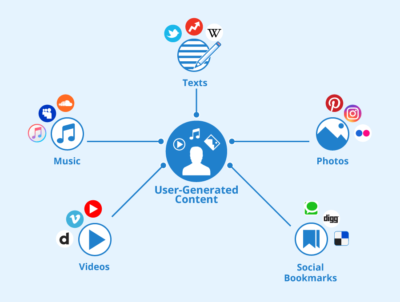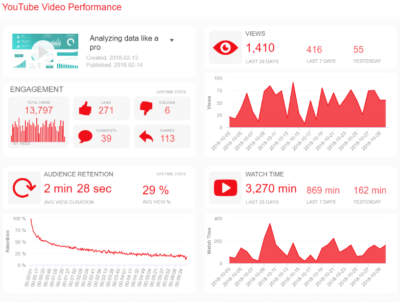Social media marketing for EdTech is a powerful tool for reaching your target audience as a business owner in the industry. With the right approach, social media can help you build brand awareness, engage with potential customers, and ultimately drive more sales. In this article, we will take a closer look at how you can use social media to market your EdTech products and services.

One of the biggest advantages of social media marketing for EdTech is its ability to connect you with your target audience. By creating content that is tailored to the interests and needs of your potential customers, you can attract more followers and build a community around your brand. Social media marketing for EdTech also allows you to engage with your audience in real time, which can be a valuable way to get feedback and improve your EdTech products and services.
To be successful, you need to have a clear social media marketing strategy for EdTech in place. This means understanding your target audience, creating compelling content, and using the right channels to reach your audience. The following sections outline some of the key steps you can take to create an effective social media marketing strategy for EdTech and get a good return on investment (ROI) for your EdTech business.
1. Understanding the EdTech Audience
To develop a successful social media marketing strategy for EdTech, it is crucial to know and connect with your audience at a deeper level. EdTech audiences are diverse and can include students, teachers, administrators, and parents. Here are some key factors to consider when identifying and analyzing your target demographics.
Identifying Target Demographics
To identify your target demographics, consider factors such as age, gender, location, and education level. For example, if your product is designed for K-12 students, your target demographic will likely be students aged 5-18, with parents and teachers as secondary audiences. Understanding your target demographics will help you tailor your messaging and content to their specific needs and interests.

Analyzing User Behavior
Analyzing user behavior is essential to developing an effective social media marketing strategy. This includes understanding how your audience interacts with social media platforms, what types of content they engage with, and when they are most active. For example, if your target audience is teachers, you may find that they are most active on social media during the summer months when they have more free time.
Leveraging Educational Data
One of the unique advantages of EdTech marketing is the ability to leverage educational data to better understand your audience. This includes data on student performance, engagement, and learning outcomes. By analyzing this data, you can gain insights into your audience’s needs and preferences, and tailor your messaging and content accordingly.
2. Developing a Content Strategy
For effective social media marketing for EdTech, you need to have a solid content strategy in place. Your content strategy should focus on creating educational content that resonates with your target audience, utilizing multimedia resources to make your content more engaging, and maintaining a consistent schedule to keep your followers engaged.
Creating Educational Content
Your content should be educational and informative, providing value to your audience. You can create content that addresses common pain points in education, provides tips and tricks for teachers, or showcases the benefits of your EdTech solution. When creating content, make sure to keep your target audience in mind and tailor your messaging to their needs.
Utilizing Multimedia Resources

Multimedia resources such as images, videos, and infographics can make your content more engaging and shareable. Use high-quality visuals to illustrate your points and make your content stand out. Videos are particularly effective for demonstrating the benefits of your EdTech solution and providing tutorials for teachers and students.
Content Scheduling and Consistency
To keep your followers engaged, it’s important to maintain a consistent schedule of content. Use a content calendar to plan out your posts in advance and ensure that you’re posting regularly. Consistency is key when it comes to building a following on social media.
3. Choosing the Right Platforms
Part of effective implementation of social media strategies for EdTech is to choose the right social media platforms to reach your target audience. Here are some popular social media platforms, emerging social networks, and platform-specific strategies that you can use to promote your brand and engage with your audience.
Popular Social Media Platforms
Facebook, X (formerly Twitter), Instagram, YouTube, and LinkedIn are some of the most popular social media platforms that you can use to promote your EdTech company. Facebook has the highest number of active users, and it offers various advertising options to reach your target audience. X is an excellent platform to share news and updates, YouTube allows you to share longer informative videos, Instagram is best for sharing photos and short engaging videos, and LinkedIn is ideal for building professional networks and recruiting talent.
Emerging Social Networks
Snapchat and TikTok are some of the emerging social networks that you can use to engage with younger audiences. Snapchat offers short-lived content that disappears after 24 hours. TikTok is a video-sharing app that has gained immense popularity among Gen Z and millennials.

Platform-Specific Strategies
Each social media platform has its unique features and audience, and you need to tailor your content and strategies accordingly. For example, you can use Facebook Live to host webinars and Q&A sessions, X polls to gather feedback, and LinkedIn groups to build communities around your brand.
Remember to track your social media metrics regularly to measure the effectiveness of your strategies and adjust them accordingly.
4. Engagement and Community Building
Engagement and community building are crucial aspects of social media marketing for EdTech companies. In order to build a strong online presence, it is important to foster online communities, create interactive content, and encourage user-generated content.
Fostering Online Communities
Building an online community around your EdTech brand can help you establish a loyal following and create a sense of belonging among your users. You can foster online communities by creating social media groups, hosting webinars, and participating in online forums. By engaging with your audience and providing them with valuable content, you can encourage them to share their experiences and connect with other users.
Interactive Content
Interactive content is a great social media marketing for EdTech strategy to engage your audience and keep them interested in your brand. You can create interactive content by using quizzes, polls, and surveys. This type of content not only encourages engagement but also provides valuable insights into your audience’s preferences and needs.
User-Generated Content
Encouraging user-generated content is another effective way to build a strong online community and increase engagement. You can do this by running social media contests, asking for user testimonials, and featuring user-generated content on your website and social media channels. By involving your audience in your marketing efforts, you can create a sense of ownership and loyalty among your users.

5. Advertising and Promotion
If you want to increase your brand awareness through social media marketing for EdTech, advertising and promotion are essential. Here are some effective ways to advertise and promote your EdTech brand through social media marketing.
Paid Social Media Campaigns
Paid social media campaigns can be a great way to promote your EdTech brand using social media marketing. You can create ads that target specific audiences based on their interests, demographics, and behavior. You can also set a budget for your campaign, which means you can control how much you spend on advertising.
When creating a paid social media campaign, make sure you choose the right platform for your audience. For example, if your target audience is students, you may want to focus on platforms like Instagram and Snapchat.
Influencer Partnerships
Partnering with influencers is one of the current trends in social media marketing across industries. In social media marketing for EdTech, you can partner with influencers who have a large following and are interested in education and technology. They can create content that promotes your brand and share it with their followers.
When choosing an influencer for your EdTech social media marketing, make sure they are a good fit for your brand. They should have a similar target audience and values as your brand. You should also make sure they have a genuine interest in your product or service.
Promotional Offers
Promotional offers can be a great way to attract new customers and promote your EdTech brand on social media. You can offer discounts, free trials, or other incentives to encourage people to try your product or service.
When creating a promotional offer, make sure it is relevant to your target audience. You should also make sure it is easy to redeem and that it provides value to your customers.

Advertising and promotion are some of the essential strategies for your social media marketing for EdTech efforts. Paid social media campaigns, influencer partnerships, and promotional offers are all effective ways to reach your target audience and promote your brand.
6. Analytics and Performance Measurement
Social media marketing for EdTech companies is an efficient tool to reach your target audience and drive engagement. However, it’s important to measure the performance of your social media campaigns to ensure that you’re getting the desired results. Below are the key performance indicators (KPIs), analytics tools, and reporting and insights that you should be using to track your social media marketing efforts.
Key Performance Indicators
KPIs are metrics that help you measure the success of your social media campaigns. Some of the most important KPIs for EdTech companies include:
- Engagement rate: This measures the percentage of people who interact with your content (likes, comments, shares, etc.) compared to the number of people who saw it.
- Click-through rate (CTR): This measures the percentage of people who clicked on a link in your social media post.
- Conversion rate: This measures the percentage of people who completed a desired action (such as filling out a form or making a purchase) after clicking on a social media post.
By tracking these KPIs, you can determine which social media campaigns are most effective and adjust your strategy accordingly.
Analytics Tools
There are several analytics tools available to help you track your social media performance. Some of the most popular tools include:
- Google Analytics: This free tool can help you track website traffic and conversions from social media.
- Hootsuite: This social media management platform includes analytics features to help you track KPIs and monitor your social media performance.
- Sprout Social: This social media management tool includes advanced analytics features, such as sentiment analysis and competitor benchmarking.
Reporting and Insights

Once you have collected data on your social media performance, it’s important to analyze the results and use them to inform your strategy. Some key insights to look for include:
- Which social media platforms are driving the most engagement and conversions?
- Which types of content (such as videos or infographics) are resonating most with your audience?
- Are there certain times of day or days of the week when your social media posts perform better?
By using these insights to optimize your social media strategy, you can ensure that you’re getting the most out of your marketing efforts.
7. Adapting to Social Media Trends
As an EdTech marketer, it is crucial to stay up-to-date with the latest social media trends to ensure your brand stays ahead of the competition. Here are some key strategies to help you adapt to social media trends:
Trend Monitoring
To stay ahead of the game, it is essential to keep an eye on the latest social media trends. By monitoring social media platforms, you can identify emerging trends and adjust your marketing strategy accordingly. Use tools like Google Alerts, Hootsuite, and BuzzSumo to stay up-to-date with the latest trends and topics related to EdTech.
Agile Marketing Strategies
Agile marketing is an approach that focuses on flexibility and adaptability. By using agile marketing strategies, you can quickly adapt to changes in social media trends and adjust your marketing strategy accordingly. Use data analytics to track the performance of your social media campaigns and adjust your strategy based on the results.

Innovation in EdTech Marketing
Innovation is key to staying ahead of the curve in EdTech social media marketing. By embracing new technologies and platforms, you can reach your target audience in new and exciting ways. Consider using emerging technologies like virtual and augmented reality to create engaging and interactive content for your social media channels.
8. Legal and Ethical Considerations
When it comes to social media marketing for EdTech, there are several legal and ethical considerations that you need to keep in mind. Here are a few key points to consider:
Privacy
Privacy is a major concern when it comes to social media marketing. You need to be transparent with your audience about how you collect and use their data. Make sure you have a clear privacy policy that outlines your data collection practices and how you use that data.
Copyright
When using social media to promote your EdTech products, it’s important to respect copyright laws. Make sure you have the right to use any images, videos, or other content you share on social media. If you’re not sure, it’s best to err on the side of caution and get permission or use royalty-free content.
Truth in Advertising
Your social media marketing should be truthful and not misleading. Avoid making exaggerated or false claims about your EdTech product. Make sure any testimonials or endorsements are genuine and accurately reflect the experiences of your users.

Accessibility
Finally, it’s important to ensure that your social media content is accessible to all users, including those with disabilities. Use alt text for images, provide captions for videos, and make sure your website is accessible to screen readers.
By keeping these legal and ethical considerations in mind, you can ensure that your social media marketing for EdTech is effective, ethical, and compliant with relevant laws and regulations.
Want help managing your social media campaign?
If you want to give your social media approach a boost, working with Madavi will help you streamline the process. Madavi is a digital performance agency and a leading provider of social media services for small- to medium-sized businesses across the world — including EdTech companies.
